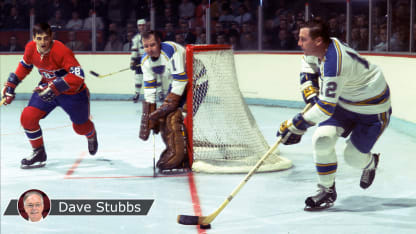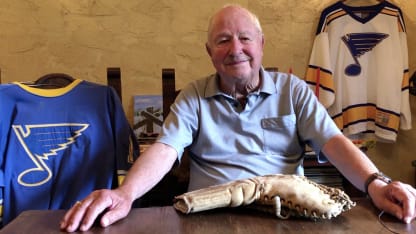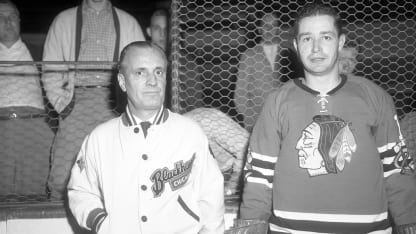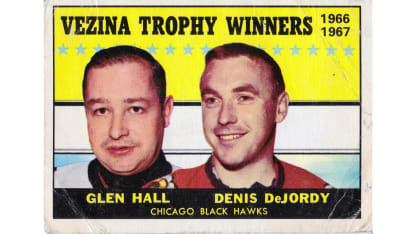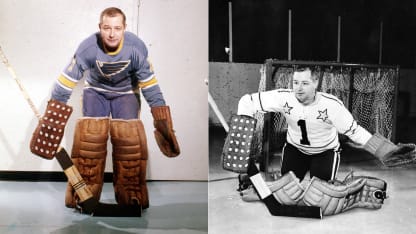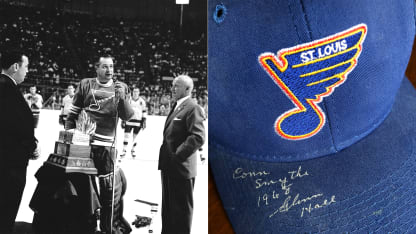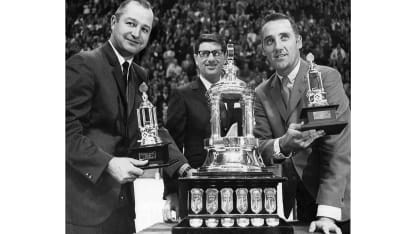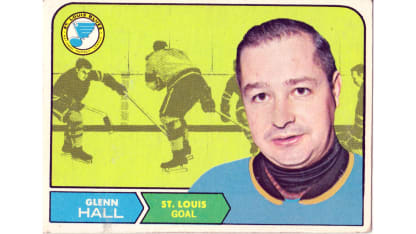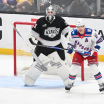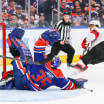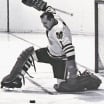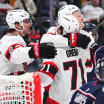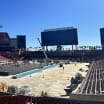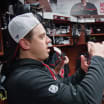Hall was left unprotected by Chicago for a Montreal hotel ballroom draft that began with the six new teams selecting goalies. After the Los Angeles Kings chose Terry Sawchuk and the Philadelphia Flyers drafted Bernie Parent, the Blues selected Hall, then 35, who again considered himself retired. In fact, Hall doesn't even recall where he was when the Blues plucked him from Chicago.
Sid Salomon III, the Blues' executive vice president, and Lynn Patrick, their coach and general manager, flew up to Edmonton to make their pitch. By then, Hall and his wife, Pauline, had bought their farm in Stony Plain, Alberta, one that featured a house too small to comfortably accommodate a family of six.
"I still figured I was retired, then all of a sudden they come out here and talk money," Hall recalled. "It was money I had never seen. We were broke. We had nothing, eh? So, we sat in a car outside my home and they asked how much I wanted to play.
